 Happy Father's Day to all celebrating, and a warm hug to all those who, like me, hold their fathers' memories close to their hearts today. I did not grow up with a father figure. My mother’s nurturing presence and female influence are what I've only ever known, including my life alongside my two sisters. Reflecting on the impact of growing up without a father has been a significant aspect of my life. What truly surprises me is how the journey defined by absence and longing has unexpectedly fostered personal growth. It's funny how life teaches us lessons even when our experiences feel somewhat void or incomplete. I was just six years old when my father passed away from heart failure. Although I knew that he would no longer be part of my life, little did I realize then that I was to embark on a journey shaped by the silence of his absence. My father’s death also became the backdrop against my lessons of love and life, a story rich in introspection, growth and resilience. True, I often found myself thinking about what could have been…like the idea of a “complete” family unit that my friends had, or a male role model to help navigate life’s challenges; a voice of fatherly wisdom to seek counsel from, or a comforting presence to offer reassurance in uncertain times. While I cherished my mom, the yearning for a different reality often tugged at my heartstrings. The void left by his passing became a silent companion, a poignant reminder of the solace and safety his presence once provided. I remember our walks in the nearby woods and how we picked wild strawberries together. I only wish I could go back to those conversations. How those moments are etched in my memory, a blend of sweetness and simplicity. I recall how he advocated for my sisters and me, shielding us from my mother's scoldings. My mother always said that she was the disciplinarian, balancing both traditional roles. In many ways, she was both mother and father, even while he was alive. She also said that my father wasn’t a man of many words unless he was writing or broadcasting in his role as a journalist, but one thing I remember is that he always had time to share a story or two while I sat on his lap. I often find myself wondering if my love for storytelling and writing was born from those tender moments of picking wild strawberries together. One thing I know for certain is that I always cherished him in the quiet spaces of my heart. As we celebrate Father's Day, I invite you to reflect on your own experiences and share how your relationships have shaped you. Feel free to leave a comment below and let's connect through our stories of love, loss, and the lessons learned along the way.
0 Comments
I think we can all agree that communication plays a significant role in every aspect of our lives. When it comes to our loving couple relationships, communication is what ties us together: everything from how we look at each other, speak and listen to each other, show up for each other, and make love. Sometimes it’s the most difficult thing to do, yet it’s what makes us feel connected and know that we matter. Communication for connection is the lifeline that sustains us through the highs and lows of long-term partnerships, guiding us through a plethora of emotions and experiences, fostering a sense of trust, and encouraging us to keep turning toward each other and freely share our genuine fears, desires, and vulnerabilities. Yet, despite its fundamental importance, there are times when communication in our relationships can unknowingly falter. We may find ourselves caught up in the busyness of everyday life, not to mention the drudgery of domesticity, where we often find ourselves going through the motions without truly connecting with our partners. For example, couples may find themselves drifting apart due to the demands of their careers and children, leading to conflicting schedules and limited quality time spent together. When this happens, communication between us becomes more transactional than relational—we communicate to get "the job done," to coordinate schedules, manage household tasks, or address practical matters. It is in these very perfunctory moments where we risk taking each other for granted, overlooking the deeper emotional connection required to sustain our relationship. Not to mention, it’s easier said than done to maintain good communication, especially since few of us grow up knowing what that really looks like, particularly when it comes to vulnerability. We often become unintentionally complacent and assume that our partners will always be there for us without actively nurturing the bond between us. This lack of awareness can lead to a gradual erosion not only of emotional intimacy but also of sexual connection, as we drift further apart in both aspects of our relationship and risk languishing in a state of exile from the passion and closeness we once shared. As we continue to drift apart, the lack of intimacy can become more pronounced. We may stop reaching out to each other, both physically and emotionally, shutting down and growing increasingly resentful. This can create a vicious cycle where we begin to think our partner no longer cares, leading to further withdrawal and disconnection. Instead of seeking solace in each other, we might snake walls around our hearts, protecting ourselves from perceived rejection but also isolating ourselves from potential healing and reconnection. The passion that once brought us together fades, replaced by a lingering sense of loneliness and unfulfilled longing. So, how can we begin to break this stalemate of disconnect and start to rebuild our connection? Well, we need to willfully and intentionally become curious about our partner and our relationship. We also need to overcome our fear of communicating. By asking open-ended questions that delve into our current thoughts, feelings, and desires, we can begin to discover each other as if anew! This alone can reignite a sense of wonder and appreciation that often fades in long-term relationships. Moreover, if we can both learn to appreciate good speaking and listening skills, without interrupting or judging each other and by using "I" statements, then we stand to build a more solid foundation of trust and safety, which is essential, especially if what we long for is a deeper emotional and sexual connection. An Exercise (adapted from Esther Perel) to Rebuild Connection: Intimacy is not a quality or an attribute; it is an experience you have with other people. Sometimes you can even have it with people that you aren’t close with. But in a committed relationship such as marriage, most of us want to know and experience moments of intimacy with our partner. Sometimes we need to redefine the state of our union and what we long for: Questions to ask yourself: Do you connect? Do you feel seen by each other? Do you feel respected by your partner? Do you feel admired/appreciated by your partner? Do you feel your partner cares about you in a special way? Do you raise your children well with your partner? Do you play well with your partner? Do you work well with your partner? Where to Start When You Feel Stuck in Your Relationship Write a heartfelt letter to your partner, such as: “We’ve been stuck. I’ve noticed it and I think you have too. We’re in a rut and I’m wondering how we got there.” Avoid Attack/Defense Mode Instead of blaming or accusing, reflect with your partner: “We used to be attentive to each other, we used to talk a lot, we used to be curious about each other. We used to play, we used to laugh. Where has it gone? And, I am asking myself that question, too. I know I can get bogged down with life and sometimes not respond to you.” Use "I" Statements When expressing your feelings or concerns, use "I" statements to focus on your own experience rather than attributing blame or assuming your partner's intentions. For example: “I feel disconnected when we don’t spend quality time together.” “I would like to understand more about what you’re going through.” “I miss the closeness we used to share and want to work together to rebuild it.” Whatever you realize about yourself, write it first, then ask your partner: “What do you think? What do you see? What do you think needs to happen for us?” Talk about “us” as a third entity, something that both of you need to nurture. Another way to engage in this conversation, related to both love and desire, is to say: “There’s a lot about me, sexually, that I’ve never had a chance to tell you about and that I want to share with you. This is what I’m thinking, this is what I’ve missed.” By integrating these strategies and exercises into your relationship, you can begin to dismantle the walls that have formed and create a pathway back to the passion and closeness you once shared. Try it! As I stood beneath the celestial spectacle of the recent solar eclipse, I found myself reflecting on the deeper parallels between the dance of the cosmos and the journey of the human heart. Like the moon's fleeting embrace of the sun, I tried to capture the essence of our emotional journey, especially the contrasting facets of our human experience... in verse.
Hope you enjoy it! Total Eclipse of the Heart In the silent depths of night's embrace, Where shadows dance and memories trace, There beats a heart, both dark and bright, A symphony of shadows, day and night. A cosmic ballet, a celestial trance, Where darkness meets the light's advance, In the heart’s deep cavernous hold, Echoes of emotions, stories untold. In sorrow's shroud, tears may flow, Yet from the depths, resilience grows, Even in the wake of the dead of night, Embers still spark with inner light. And in the dawn's embrace, we find, Not only the beauty of the human mind, But laughter's echo, love's sweet song, We gather strength to carry on. Within the total eclipse of the heart, Courage ignites a brand new start, We embrace the darkness, we embrace the light, And in this journey, discover our flight. So let us embody the shadows cast, For in their depths, the truth is vast, In every tear, in every smile, We walk the beauty of the human mile. And, may we dance amidst the shadows, Welcome the light, accept the sorrows, Where the soul’s eclipse reveals its art, In the masterpiece of the human heart. by Lydia Waruszynski As the temperature rises and the sun graces us with its warmth, many of us dive into the age-old tradition of spring cleaning, bidding farewell to the remnants of winter and making room for the freshness of spring and new beginnings. But, from where I sit, spring cleaning isn't just about dusting off shelves and organizing closets; it's also an opportunity to declutter the mind and sweep away the sticky cobwebs of our thoughts, habits and emotions that no longer serve us, and start anew. Just as we tidy up our living spaces, relationships benefit from a little sprucing up, too. We need to recognize the mental congestion that accumulates – like those pesky misunderstandings and deep-seated resentments, and let’s not forget the disguised "I'm-fine-but-not-really" moments, right? Sound familiar? Like a cluttered attic, together we can clear away the neglected debris and make space for a fresher, more vibrant connection…if we aspire to!
In life, we often get lost in routines, trying to bring order to the ‘hustle 'n bustle’ of every day. Normal. But in this quest for balance, we might overlook the silent accumulation of mental clutter that shapes our thoughts and emotions. Life gets busy, and sooner than we realize we’re dealing with emotional dust bunnies and unspoken feelings. Picture it as dust settling in the corners of our minds. Over time, these layers of mental dust can dim our clarity and hinder our ability to navigate life together. We might even take it for granted that we don't need to check in with each other because we're too busy, allowing things to pile up between us. However, without intentional communication and quality time together, issues accumulate and emotional distance grows. Small disagreements go unresolved, unexpressed needs fester, and the intimacy we once shared begins to fade. That’s why a bit of spring cleaning, a chance for a redo, is a good idea. It clears out the emotional cobwebs and brings a fresh new perspective to our bond. I often tell my clients that when it comes to life and love, we don’t really see things as they are, rather we see things more as we are. Most of the time we aren’t even conscious of it. Our emotions shape our perception of reality. For example, if we're weighed down by sadness, the world may appear washed out, lacking the vibrancy it holds during happier times, while anxiety can make simple tasks seem so much more insurmountable. And simmering anger…well, that can cast a shadow on everything, tainting all of our perceptions and interactions. Our vulnerabilities, therefore, become the filter through which we perceive reality, often distorting it altogether. So, unless we're communicating openly, worries and stressors often act as invisible dust, clouding our vision. These unspoken tensions can create distance and diminish the vitality of our relationship. It’s only by embracing our feelings and fostering honest dialogue, that we may reduce the emotional clutter and rediscover the intimacy and closeness we desire. To kickstart your own mental spring cleaning, take a moment to think about these questions:
And once you've dusted off those thoughts, why not share them with your partner? It might just feel like a breath of fresh air! letstalkaboutlove.ca by lydia @letstalkaboutlove
For many people, Valentine’s Day arrives adorned in hues of love, but for the broken-hearted, it is only a poignant reminder of what once was. I frequently reassure my clients that it's okay to feel the ache, the longing, and the memories. After all, the wound of heartbreak is a profound form of grief and a universal human experience. More importantly, in the delicate dance of human emotions, heartbreak may also serve as an opening—an opportunity for both growth and healing. While they are intense teachers, suffering and loss also have the power to eliminate the unnecessary, bringing to the forefront the values and relationships that are most meaningful to us, and reminding us that, at heart, we are capable of forming close, loving relationships. Sometimes, it's only within the deep recesses of pain that we uncover our most crucial life lessons and gain a deeper understanding of ourselves. So, never fear this. Your pain is valid, and you are exactly where you need to be. The love you invested, the dreams you shared, and the vulnerability you offered were not in vain. They were brave expressions of your beautiful heart. Even unrequited love is never in vain. Please know that you will not be heartbroken forever. And, that with proper self-care, time can heal our wounds. Above all, the valuable lessons learned can last a lifetime. It's important to honour the depth of your emotions without judgment. Much of the healing or answers you seek will happen within the quiet, reflective spaces of your mind and soul, so pause and listen as you find your way. You are not defined by the ending; rather, you are shaped by the entirety of the journey. Recognize that your heart, though tender, is resilient. Your broken heart still beats. Each beat carries the rhythm of your experiences—a story of love, longing, loss, and, yes, even the beautiful, enduring spirit within you. Let this be your guide; let this process lead you to a life with more clarity and purpose. The time spent in contemplation is not just a hiatus from the world but a necessary period for healing and gaining insight. As you reflect on your experience, remember that self-love is not only a concept but also a practice- a daily commitment to your own well-being. Perhaps even at this moment you already realize that you have risen from pain with some wisdom. Perhaps you’ve discovered a well of empathy, as understanding the nature of your suffering may have likewise opened your heart to the pain of others. Continue to reach out and connect with others. Spend time with those who uplift and support you. In shared humanity we find solace. In the emotional mosaic of life and love, we are all stories of self-discovery, resilience, and strength. Trust in this. So, my dear reader, in the quiet moments of introspection, be patient and kind to yourself. The love that once graced your life, though changed, has left an indelible mark, for sure. Honour it, cherish the memories, and trust that within the folds of heartbreak, you are sculpting a masterpiece—a resilient, authentic, and beautifully awakened version of yourself. A Me 2.0! Transformation! This Valentine's Day follow your heart and hold space for the healing that needs to unfold. In doing so, you may find that the most intimate and profound connection is ultimately the one you cultivate with your own heart. Believe in this. Believe in your heart. Here are some reflection questions to consider:
 Today is “Bell Let’s Talk Day”. While this day typically centers around human experiences and conversations, seldom do we delve into the impact our four-legged companions can have on mental well-being. Well, allow me to introduce you to Callie, my beloved Bernese Mountain dog, whose story once took an unexpected path, highlighting the unique role pets can regularly play in fostering emotional health. Before the pandemic, my mother-in-law moved into a nursing home, as she could no longer care for herself. It was right around the same time we adopted Callie. During one regular visit to her, we discovered that the residence welcomed dogs, as long as they were well-behaved dogs, allowing Callie to become an “unofficial” therapy dog. I must say that even though Callie was still the same ol’ wonderful Callie, in those particular therapeutic moments she went beyond the role of a traditional pet, creating connections with perfect strangers, and spreading joy and smiles, which increasingly made our visits that much more special, too. It was heartwarming to witness how Callie, with her infectious enthusiasm and warm companionship, could effortlessly break down barriers and touch the hearts of people she had never met. It was also during these interactions that we would witness how Callie, even if only for a short while, could alleviate the profound sense of loneliness which often plagues those living in such facilities or environments. Even within the lively atmosphere of a nursing home where shared spaces and routines often create a sense of community, loneliness is common and lingers like a silent companion. Despite the bustling surroundings and the company of others, many residents routinely navigate through their own personal struggles that unfold inside its walls. The residence my mother-in-law lived in was no exception. But, one day, amid these silent battles, a tail of transformation quietly unfolded. Callie came to visit! Lo and behold the place came alive! It was evident that Callie possessed a remarkable gift for brightening people's faces with joy! There was one woman, in particular, who absolutely lit up whenever she saw Callie. Although sharing the same room as my mother-in-law, she seldom engaged with her or others. A profound loneliness hung heavily around her. Before Callie's visits, her days were spent gazing at a photograph of her late husband, lost in memories of happier times. That is...until Callie came to visit! In those moments, the atmosphere changed. Dramatically! It was as if she had been freed from the grips of her depression. This woman found a renewed vitality, talking and petting Callie, enjoying her wags and damp nose nuzzles, not to mention graciously enduring Callie's slobbering drool while sharing moments of joy over carrots and cookies:-). Callie, with her infectious enthusiasm- and appetite- suddenly became a beacon of light in this woman's life, simultaneously transforming the ordinary into the extraordinary in the heart of the nursing home. It was beautiful! Even my mother-in-law noticed the change, observing how this woman became more personable and talkative both during and after Callie's visits. Callie, my love bug, spreading smiles with every wag! Such is the enduring power of connection... even if shaped by the simplicity of a dog's presence or genuine companionship. As both my mother-in-law and her roommate passed away during the pandemic, we no longer visit with Callie. However, the memories we have of our visits remind us about how therapy for our mental health can come through pets. Pets have an innate ability to bring joy into our lives. Callie certainly does. Their playful antics, amusing behaviours, and unconditional love can turn even the gloomiest days into moments of laughter and delight. Beyond emotional support, pets also play a pivotal role in promoting physical well-being. The daily walks, playful activities, and interactive games with our pets encourage us to exercise regularly, contributing to a healthier lifestyle, too. This not only benefits our physical health but also stimulates the release of endorphins, the body's natural mood enhancers. So, today, as we engage in conversations surrounding mental health during Bell Let's Talk, let's not overlook or underestimate the profound impact that our furry friends can have on our mental well-being and those around us. In the simplest of gestures, like a wagging tail or a wet nose nudge, lies the potential to alleviate loneliness and bring unexpected joy. Callie's visits to the nursing home aren't just about a dog and its admirers; they represent the enduring power of love and connection, reminding us that, sometimes, the most profound therapy comes from a warm gaze with four furry paws. Aaah, Christmas—an enchanting time painted as the epitome of joy and camaraderie, a picture-perfect season filled with vibrant lights, cheerful carols, the promise of togetherness and a holly-jolly good time--Fa-la-la-la-la-la-la-la-la! It is hard to escape, really, as the commercial aspect alone, with its emphasis on gifts, decorations, and festive advertisements alludes to the belief that everyone should be happy during this time. Yet, the reality is that within these folds of anticipated merriment, a stark contrast exists for many—an undercurrent of poignant sorrow, an ache of loneliness and emptiness, and most often a longing for what once was: perhaps the presence of loved ones now absent from the familiar festive table, or the kinship of family and friends once so inseparable currently drifted apart; romantic relationships emotionally disintegrated or regrettably dissolved; or quite simply, a craving or deep yearning for the unspoiled grace and tranquility of the “good ol’ days”. For many people, whether fresh or deeply ingrained, a bittersweet nostalgia has a profound way of casting a shadow over what is meant to be the most “wonderful time of the year” . "Christmas isn't a season. It's a feeling." - Edna Ferber The challenge lies in reconciling these divergent worlds- the pressure to exude festive glee while carrying the weight of personal heartache. No merry walk in the park that’s for sure! Not only can this struggle to maintain a happy facade while wrestling with inner pain be emotionally exhausting, but it can also be profoundly isolating, amplifying the sense of solitude and disconnect during a season meant for love and shared joy. In guiding individuals through this struggle, I often emphasize that this subtle interplay between societal expectations and authentic feelings is embedded in life…throughout our lives. Think about it: from the earliest days of childhood, we're nudged to conform, to present a persona that aligns with societal norms. "Be good, be polite, smile even when you're sad…Be Happy!” These societal expectations often clash with our true emotions. This dance continues into adulthood. We learn to navigate the pressures to fit in and to project happiness even when our hearts feel heavy with pain. So, this struggle, this balance between the expected and the real, isn't just a seasonal thing—it's pretty much woven into the emotional fabric of our lives. Acknowledging genuine emotions, especially in moments of grief or loss, marks the initial step towards healing. Not only is it an opportunity to redefine our relationship with ourselves and the world around us, but it is only through embracing our vulnerabilities that we uncover the depths of our resilience. Sitting through our discomfort and trudging through our struggles is the way through pain. The following self-awareness exercise is designed to help explore the intricate blend of emotions you may be experiencing during this holiday season, aiming to navigate the delicate balance between societal expectations and personal sentiments (between what we feel obliged to portray and our genuine feelings). Recognizing and embracing these feelings can significantly enhance the authenticity and fulfillment of your holiday experience. Exercise: Unwrapping The Ghosts of Xmas Past Consider keeping a journal dedicated to your reflections during this holiday season. Writing down your thoughts, emotions, and the insights gained from this exercise can be a powerful way to track your emotional journey. Use this space to explore your feelings, triggers, as well as your coping strategies. Journaling offers a valuable outlet for processing emotions and can serve as a helpful tool in managing your feelings.
Wishing you Peace and Love this holiday season, Lydia. Embracing Pleasure Begins by Honouring Consent
Discussing sexual pleasure openly not only empowers individuals to advocate for their desires and preferences but also cultivates more trusting, respectful and fulfilling experiences together. When partners have a shared understanding of each other's boundaries and preferences, the focus shifts toward mutual pleasure where they can better cater to each other's needs, leading to a more pleasurable and fulfilling encounter. Honest conversations about sex also challenge societal norms and stigma (especially pre-conceived notions of what sex should look like that often induce shame around sexuality) paving the way for emotional intimacy- allowing partners to connect on a deeper and more confident level. In essence, consent requires us to get vulnerable before we get naked and when we do, it can really form the foundation for shared pleasure and connection. 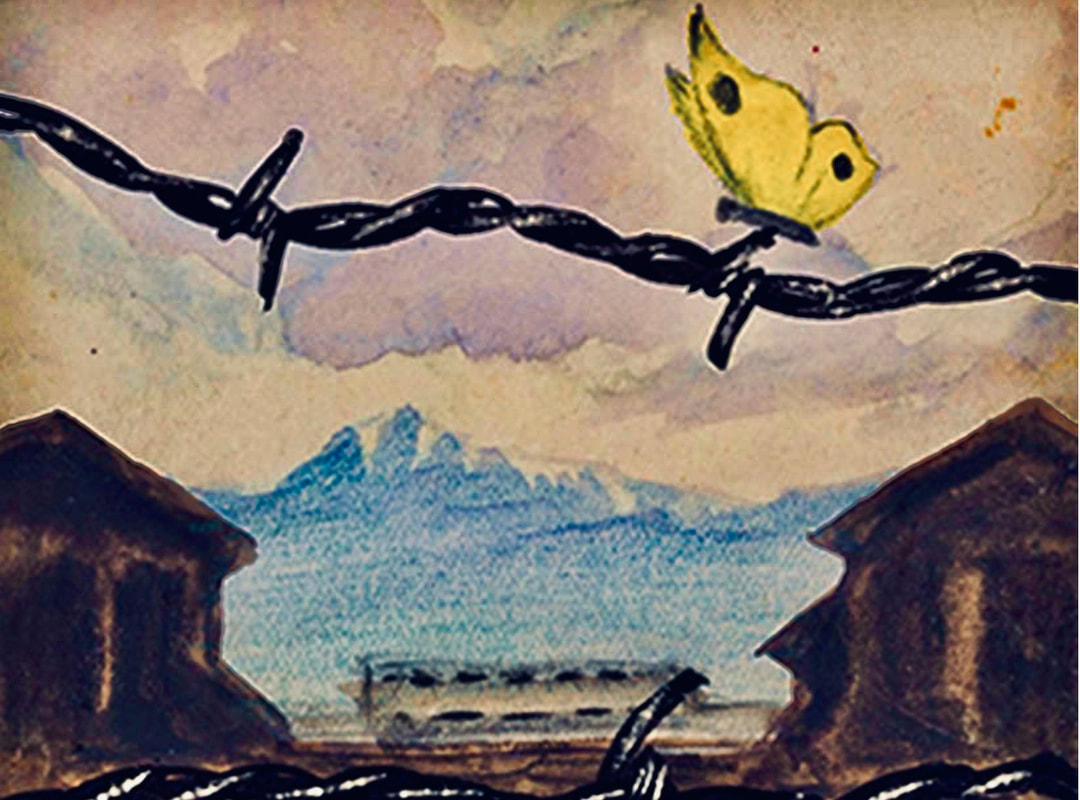 A Christmas Eve in a Concentration Camp, penned by my dad in 1944. Translated by me. My father spent time as a political prisoner in three different concentration camps. Melk was an annexe camp of Mauthausen in Austria. For all of his short life he espoused and advocated freedom, faith and forgiveness. For the past two weeks all the camp inmates could think about was Christmas. As the holiday grew closer, the mood deepened and intensified. Two concerns highlighted the hushed conversations among the group of prisoners while they worked: will we get some time off during the holidays? Will they give us better food to eat? And, if they do, what food will they feed us and how much will we get? Rest and “food”…that’s what anyone really cared about. There were those who fondly remembered and spoke about the ‘good old days’, recalling fat and warm Christmas Eves spent in freedom. Food, drinks, sweets, cigarettes, fine clothes, and lounging around dominated their conversations. In no time, however, the desperate men succumbed to their deeper feelings of dashed hopes and dreams, angering one another with their cursing and swearing. For a moment their spirits remained free, drawing strength and nourishment from memories of happier times and fully-laden tables. 'Oh may they all not wait too long for the perfect Christmas Eve to come' As I contemplated the meaning of Christmas through a prisoner’s -a *häftling’s- eyes, wistful images reminiscent of *Andriolli’s flair for indulgence and carefreeness in contrast to *Grottger’s bottomless misery and despair, I thought about the possibility of creating a new Christmas in a German concentration camp…an expression of a new reality of a new time with new people. I entered into a silent alliance with block leader No. 3: Franz Sikorski. “Ok”, the “ruler and master” of block 3 snapped back: “Fine, make your own Christmas Eve!” The content for the evening's celebration was born during a train ride between *Melk -*Loosdorf. Even after a heavy day of labour, already a new mood seemed to permeate the group of passengers. I was also able to gather a few more Polish prisoners from the *”Negrelli" commando. Rehearsals began... The repertoire of Christmas carols was ready. Christmas Eve had finally arrived. We finished work at 2 o’clock that day. Back at Block 3, in a long corridor on the third floor, there appeared to be a large group of prisoners immersed in curious conversations. At the top of the stair flight I see a small, modestly decorated Christmas tree. It’s 7 o’clock in the evening. The assembly of inmates shuffle in. Camp stripes fill the corridor. Roll-call formation. They line up in groups of five, evenly spaced, row by row, filling any gaps between them. Shiny “highway strips" can be seen on their shorn heads under the bright ceiling lamps. Silent whispers. Many skeptical glances. We all wait for the “fürher” …and the order. The proud beast enters the barracks. In the corridor, 54 prisoners stand in frozen stillness. Franz Sikorski reads us the daily report, ending with: “Today is Christmas Eve. Although I personally don't believe in all of this, maybe there is something in it. I want there to be order. Don't give me a reason to have to punish someone at this time. My mother was Polish. I remember that on Christmas Eve her family always sang Christmas carols at home. And we will do it today here in the gulag. Let everyone sing. It must be cheerful.” The Christmas tree glows brilliantly with electric lights attached to its branches. A group of Frenchmen step forward in front of all the prisoners of the third block. They sing carols in their own language. A church melody sounds strangely tender. Applause. Then the Italians sing. The chorus is dominated by beautiful singing. Bel canto. It seems as though angel voices are falling upon us from beneath the ceiling of a cathedral. The Christmas spirit is growing. The Greeks follow.… an odd-sounding tone of words. No one understands them. And now the Poles! I go out with my group. My heart is in my throat… We begin with “God is born!” Inconspicuously, I look over at Franz’s face and see the gleam in his eyes. An odd grimace of a smile. His eyes seem turned outward, as if lost in thought, very, very far away from this place. A thunderous applause. The singing continues: “When Christ is Born”, "Hush Little Jesus”, “Silent Night.” Polish carols. Polish words. These Polish melodies tug at our heartstrings. A new reality. Applause! Applause! Applause! The prisoners are beaming with Joy. In this gulag, in this circle of Satan, Christ is born. A small light found in the darkest of places. But it does not end here. There's more. We sing carols arranged especially for the vengeful Franz (after all, sometimes it is good to throw some flimsy bone to a dog that always wants to bite). We sing the song - "He lies in the manger". At our gulag there is another blockleader, who comes from Trzemeszno. So we sing him a song, too: “When Jesus is born”. Franz can't believe his ears because he knows this blockführer has beaten so many men to a pulp!! Human beings… blood, love, striped pyjamas, forgiveness, howling pain, broken clubs, bloody chair legs, songs, crime, starvation, suffering, death, hatred... and the choir continues to sing... a Christmas carol for him. Caged within the walls of this Nazi prison and execution building, on a peaceful December night, a Polish victory song suddenly arises: “Our entire country will stand The *Piast stronghold will stand The White Eagle will prevail The Polish people will prevail!” The patriotic mood is shared by Franz as well. He also sings about the victory of the White Eagle. Unbelievable! All the Poles are singing now. The amiable Stasiek Lechowski sings, the limestone labourer Stasiu Niebudek sings, the old, owl-faced Aleks Mikołajczyk sings, the handsome Janek Wiśniewski, and the unforgettable Jurek Wojciechowski,...they all sing too. Everyone sings! The spirit of a new Christmas Eve now reigns over the holidays. We feel good. Photo credit: “One Spring” — Gurs Camp, 1941 — By Karl Robert Bodek and Kurt Conrad Löw — Watercolor, India Ink, and Pencil on Paper — 14.4 x 10.3 cm — Collection of the Yad Vashem Art Museum, Jerusalem — The World Holocaust Remembrance Center *häftling: German for prisoner. The name häftling not only declares one's imprisonment in the Lager, but also signifies how their former identity as an individual, as a human being, has been overridden by their status as a prisoner. *Andriolli: Michał Elwiro Andriolli was a Polish illustrator, painter and architect of Italian descent. He is notable for his illustrations to Mickiewicz's Pan Tadeusz. *Grottger:Artur Grottger was a painter and draughtsman representative of late romanticism who worked in Vienna and Lviv. *Melk-Loosdorf: prisoners work consisted primarily of digging an underground tunnel complex in the Wachberg hill which is situated between Melk and Loosdorf. https://www.melk-memorial.org/en/history *Nigrelli- one of the building companies hired out by the SS camp direction. *Piast: The period of rule by the Piast dynasty between the 10th and 14th centuries is the first major stage of the history of the Polish state. https://en.wikipedia.org/wiki/History_of_Poland_during_the_Piast_dynasty by Lydia Waruszynski, M.Ed 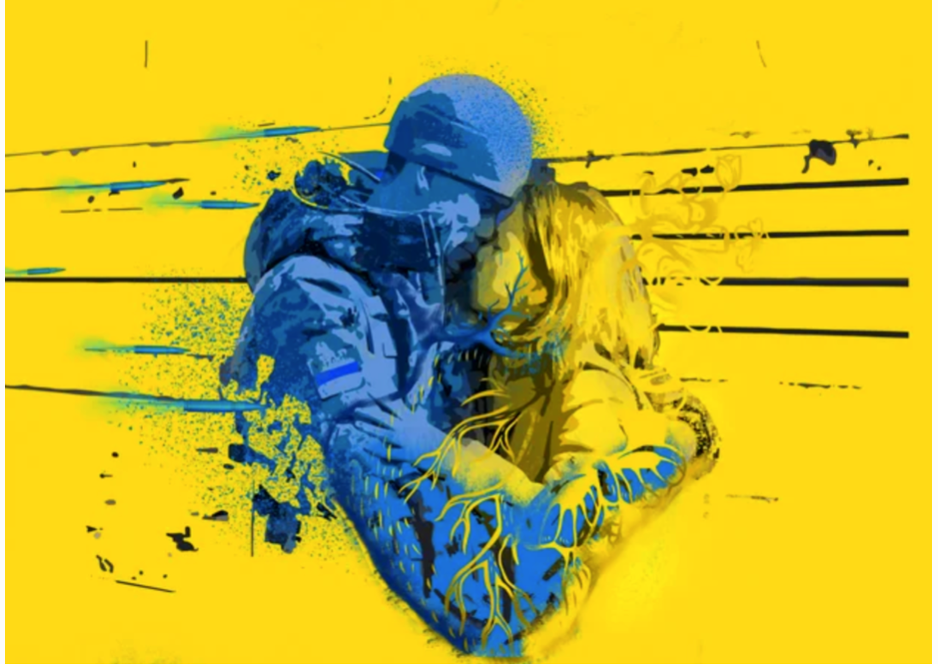 There’s an old saying, “all’s fair in love and war”, and basically the meaning behind it is that in some type of situations, anything or everything can be justified whether you are going after the person you love, or waging war on your enemies; that, in both matters of combat and the heart, self-interest reigns and people rarely follow rules of fair play. In other words, in both love and war, any kind of behaviour is permissible in order to get what you want, any method of achieving your objective is justifiable. So what if someone else gets hurt? Well, when it comes to war, Vladimir Putin has certainly proven that. Lying, cheating, bullying, bribing, manipulating facts, violating international law…all part of his cold and calculated ambition to get what he wants, to be seen as a famous historical figure and to “make Russia great again”; all ruthless stratagem consistent with his character and credo: everything it takes to win the war. How quickly the unforgettable becomes the unimaginable Millions of people have fled Ukraine since Russia began its invasion. Thousands have already died. Ever since Putin’s war broke out, I cannot help but think about how one person’s power and self-serving interest has recklessly destroyed countless innocent lives, breaking the hearts and homes of so many, while spawning the largest humanitarian crisis Europe has seen in decades. I cannot help but think about how the rest of the world could have listened a bit more closely and acted a lot more sooner. And, how we all now helplessly watch from a distance as the UN, G7, EU, and NATO continue to condemn Russian actions and support Ukrainian forces. Haven’t we learned anything from previous wars and crimes against humanity? Will ratcheting up sanctions really deter Putin from winning his war? This is, after all, a president who has maintained, time and again, that Ukraine is not a country and that its citizens are really Russians, or what he would like to believe, his “master race”. Decimating cities into forced displacements, shooting civilians, shelling children, sexual violence, mass graves…and like every man-made war from time immemorial, we somehow continue to witness the same barbaric, disturbing parallels. How horrifying and utterly sad. I ask myself: How can this even be happening? How can the world watch yet another despot, another genocide? Will we ever live in a world without war? How, as human beings, do we continue to confront the lessons of history, yet seem condemned to repeat them, again and again? The trauma of injustice It seems like forever ago since I watched a video of a Ukrainian man bidding his young daughter a tearful goodbye before he dutifully boarded a train to join the military fight, ready to defend freedom and his homeland, not knowing if or when he would return. Under martial law men are expected to fight and help out with the war effort. To watch this heart-wrenching bravado of “keep calm and carry on!” go to pieces as father and daughter succumb to their suffering and crumble into each other’s crying arms…well, I can’t even begin to imagine all the broken children who now find themselves desperately afraid and alone, having to learn to deal with the trauma of what happened to their parents, families, communities and homeland: nightmares, flashbacks, sleeplessness, terror, anger, anxiety, mistrust, fearfulness… lingering ravages of war, just to name a few. One can only imagine the brutal reality behind all the good people now forced to do bad things in the name of battle and survival. Oh my, how the war wounds run deep! I cannot believe how quickly everything has changed for the people in Ukraine. Just think, only three months ago their lives were basically as everyday as yours or mine. It’s scary how suddenly life can be thrown into turmoil! While I work from the comfort of my home helping couples demystify love and war in their ordinary day-to-day intimate relationships, I cannot help but be reminded of all the difficult challenges and harsh circumstances Ukrainian couples routinely face, and how immensely shattered they must feel by this very cruel, selfish and senseless war. I can’t help but let my mind wander to those couples deeply in love and now forced apart, with still so much left to be said and lived, and time unjustly ticking away. And what of those couples whose last conversations were marked by conflict and regret, with no opportunity to rekindle or repair? Even if many do find a way back into each other’s arms, I picture how PTSD will clearly create problems with trust and communication, even go on to sabotage or destroy a great number of these relationships. I think about all these couples and what they are up against: the trauma of a prolonged war in addition to their own personal versions of battle and failed peace talks, not to mention sagging spirits, and a longing for a life that no longer exists or will never be the same. Etched in my mind forever will be the women and children, the family pets and the elderly, fleeing for safety in what has become the largest exodus and forced migration in Europe, ever. Even more remarkable are the many acts of kindness from the people of Poland and other border crossings, including Canada’s proactive and warm response to helping refugees feel at home in their new country. On the other hand, it’s difficult to imagine that although a war is raging in Ukraine, not everyone has left and that some have decided to stay put, no matter what. I shudder at the thought of all the helpless people and animals who wanted to but had no choice or were unable to flee. I wonder who will take care of all the forgotten ones, already far too many who continue to find themselves very alone and bereft of support. And what about all the Russians, including soldiers, who have no sympathy for Putin and feel anxious and distressed and strongly oppose this war? What about the truth on the other side of the line? Patriotism often blinds people during insecure times. What’s truly unfortunate, however, is that amid the heartache and the bloodshed, exists the tragedy of two countries with many ties to family and history, and the sinister way they are now being torn apart. For many, this war will never be over, if only in the minds of those who suffered it. All because of one man. And his ambition to own more lines on a map. As Putin continues to throw Ukraine into chaos, I meditate on how everyone feels separated by war and united in fear, and how domination is the seed of so much suffering in the world. Even with his weapons of mass destruction, I wonder if Putin knows that, in the end, no one ever really wins a war. |
Hi, I'm Lydia- a modern-day warrior of the heart with a mission to reconcile the mystery and mastery of Love.Archives
June 2024
|
Workshops |
About us
|
|


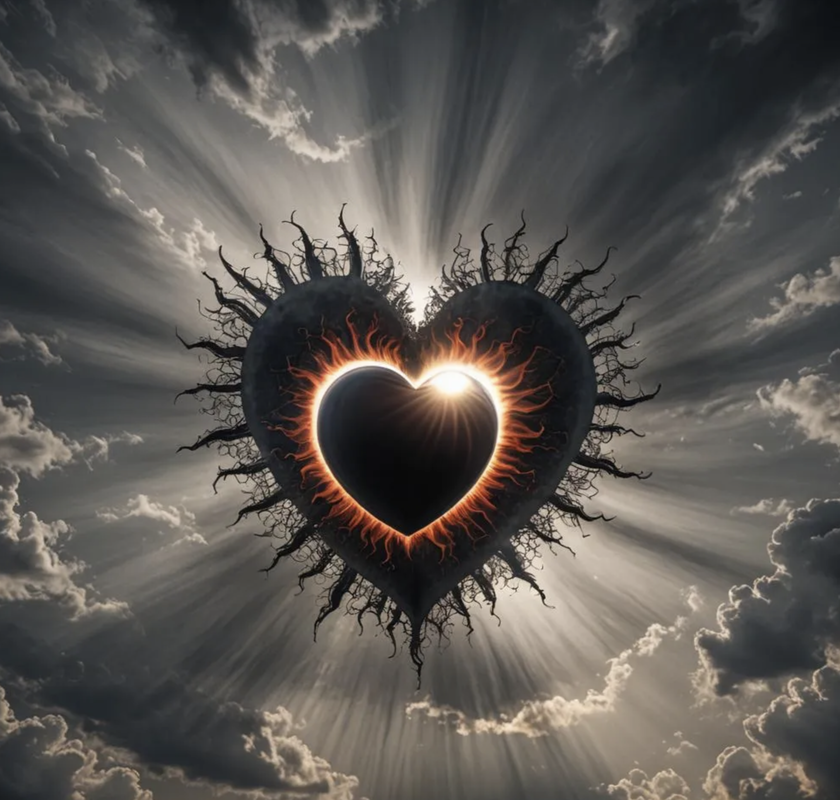
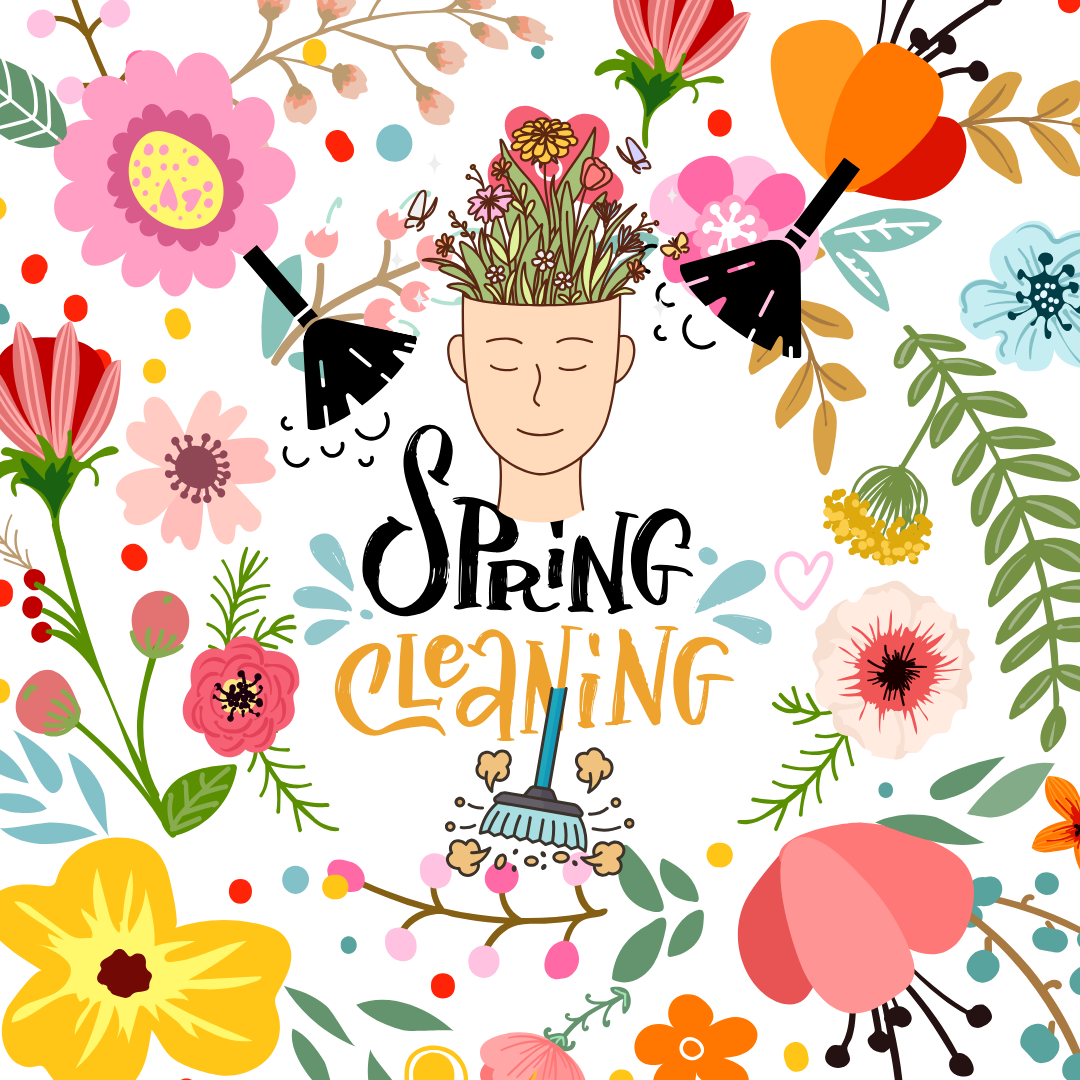
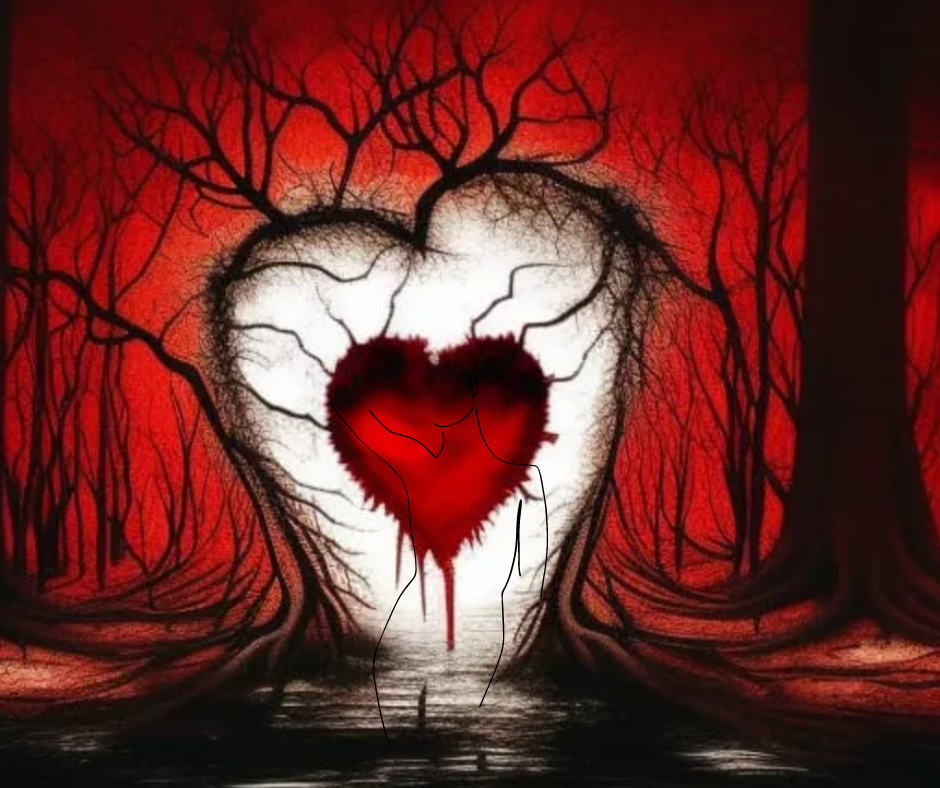


 RSS Feed
RSS Feed